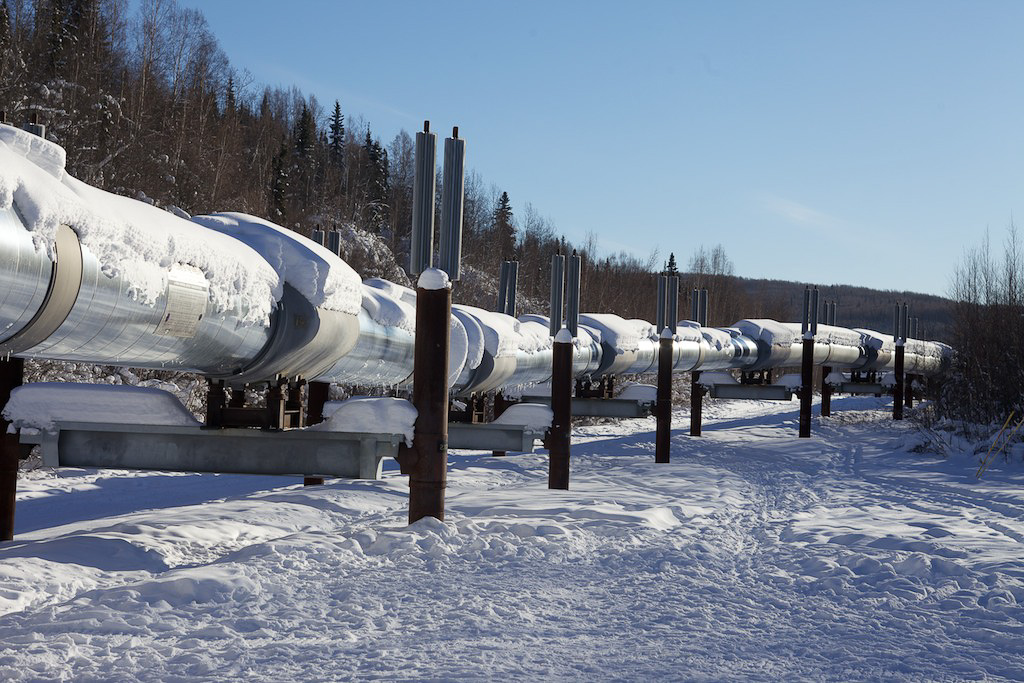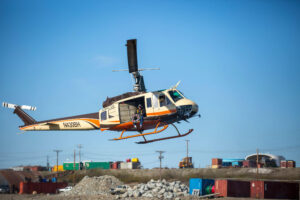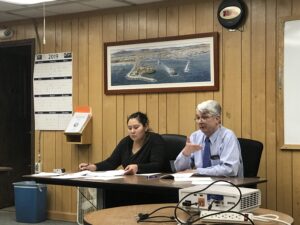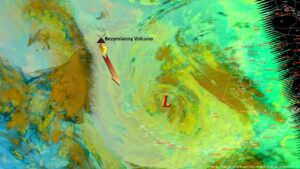On election day, Alaskans will weigh in on two ballot measures. The first is the North Slope Oil Production Tax Increase Initiative, also known as Ballot Measure One. KNOM reports on the pros and cons of this measure.
“Oil is Alaska, and Alaska is oil.”
That’s how Steve Johnson, director of SeaWolf Debate at the University of Alaska Anchorage, opened up a debate on Ballot Measure 1 on October 13th.
“Alaskans are unique from the residents of the other 49 states in many ways, but perhaps most significantly in this way. They likely know more about the taxation of natural resources than do most of their fellow Americans.”
– Steve Johnson
According to the Resource Development Council for Alaska, oil production funded up to 40% of the state’s unrestricted general fund revenues for most years and has accounted for over $180 billion in revenue since statehood.
Also known as the Fair Share Act, Ballot Measure 1 hopes to increase taxes on oil production fields in the North Slope. Potentially applicable oil fields also need to have a life output of at least 400 million barrels, and an output of at least 40,000 barrels per day, in the preceding calendar year, before they can be taxed.
Based on this criteria, three oil fields would be impacted by Ballot Measure 1: Alpine, Kuparuk, and Prudhoe Bay.
“[Ballot Measure 1] only applies to the most profitable fields in North America… [it] doesn’t apply to Willow, doesn’t apply to PIKA …”
– Robin Brena
Robin Brena is a longtime oil and gas attorney. With the State of Alaska anticipating a significant financial deficit this year, proponents of the Fair Share Act believe that raising taxes on the North Slope will bring in more revenue for the state. Brena is spearheading the case for the Fair Share Act, and argues that the bill would help bring in over a billion dollars in revenue a year.
“Our royalties are 12.5%. They are half of what other oil resource states get. Half … Then there’s production taxes. Since Senate Bill 21 has been in effect, Alaska has been in an economic tailspin. It’s been chaos up here … Alaska is being dismantled while our oil revenue is leaving the state for free.”
– Robin Brena
On the other hand, opponents of the bill believe that the Fair Share Act will simply discourage companies from investing further in oil fields in the North Slope.
Independent economist Roger Marks says that Alaska has tried raising oil taxes before but has failed in effectively increasing revenue in the long run.
“So what happens when a fiscal system is not competitive? In the 1989 oil tax change, just like the Fair Share Act, it targeted high tax rates for big fields. It was a short-term revenue boost but within months producers were switching their investments from high tax to low tax fields. And existing fields, once you stop investing, production goes in the free-for-all.”
– Roger Marks
Marks also elaborates that doing business in Alaska is dangerous and costly because of its climate and location. Raising taxes might simply discourage oil companies from making the investment in an already risky playing field.
In fact, ConocoPhillips, a major player in the North Slope and Alaska’s leading oil producer, has recently said that the Fair Share Act would force them to significantly scale back their investments in new projects in Alaska.
The ballot initiative would also require that filings and information submitted to the Alaska Department of Revenue by oil companies be considered public records. Many opponents to the bill believe that this requirement will only make Alaska’s oil a tougher sell to investors, but Senator Bill Wielechowski of the Senate Finance Committee believes that it would be a very important step for deciding on oil legislation.
“I can’t even find out how much profit an oil company makes in the State of Alaska. … This is information that oil companies routinely provide around the world, but in Alaska, the policy makers are asked to make critical policy decisions while blindfolded.”
– Sen. Bill Wielechowski
Whether Ballot Measure One will be passed or not is all dependent on Alaskans’ votes during this year’s general election. Be sure to send in your absentee ballot or cast your vote early, or in-person at the polls on November 3rd.
Pictured above: The Alaska oil pipeline, just north of Fairbanks, taken Feb. 25, 2013. Photo: Malcolm Manners via Flickr Creative Commons.





